«Spanish is such a useful language in today’s world»

We interview Elijah Berry, a 21-year-old student of Spanish and German at the University of Bristol. He recently completed his compulsory year abroad in Argentina and he is now studying his final year to graduate in 2021.
Berry recently won the Warwick Prize in Undergraduate Translation, with the translation of three texts from Spanish into English.
Why do you study Spanish?
I’ve studied Spanish since year 10 in secondary and I really enjoyed it all through GCSE and Alevel (it was one of my favourite subjects, I had a really good teacher and a lovely group of people in my class). I really believe that you should do something that you enjoy and so that is what I did. Spanish is also such a useful language in today’s world with so many speakers and learners.

What do I like most about it? What are biggest challenges?
I love that I can talk to people in their own language, rather than others always having to use English, I think it’s the best way to be able to understand other cultures and identities. Also being able to read Spanish language books, watch Spanish language movies and TV shows (there are some great ones out there) in their original language is very satisfying and I really get a lot out of it. Getting to learn about history, culture but also linguistics which I find really interesting and have only discovered during my time at university – but I love it! Translating is also a fun and unique aspect of language learning which I really like doing as well.
I think for me the biggest challenge is reaching and maintaining fluency – I’m still working my way there – but hopefully after some more time living in Spanish speaking countries, I will reach my goal.
What are my future plans in relation to Spanish?
Next year after graduation I am planning on doing a British Council Teaching Assistantship in either Ecuador or Spain. I am also interested in getting into the world of professional translation in the future. I definitely don’t want to lose my Spanish and I want to keep it up always! Spanish will always be important to me.

Learn to connect, connect to learn.
Learning a new language expands your world.
connects you with more people, more opportunities
and opens up new doors, pathways and challenges
Because learning a language is more than just earning a certificate:
It is discovering how being understood makes you a part of things;
It is understanding how to reach the hearts of others.
Instituto Cervantes, 30 years dedicated to making Spanish
a greater, more universal language
connecting more and more people.
Now, all our experience, and our highly qualified teachers,
are available in our on-line courses.
Taking Spanish to every corner of the world
and your heart to wherever it desires.
Instituto Cervantes.
Learn to connect,
connect to learn.
#InstitutoCervantesenlínea
William Frost: «I think Spanish is a wonderful language and I feel like it is the most useful language to be learning right now»

William Frost is originally from Shrewsbury, but now he lives in Canterbury. He has moved around a lot as he teaches English as a foreign language; he spent two years teaching in Cologne, Germany. He also taught in London for some time where he came into contact with a lot of Spanish and Spanish speaking students.
He has done some independent journalism and video making mainly on the topic of Latin America and Iberia. Now he is training to become a secondary school teacher at Canterbury Christ Church University specialising in Spanish and French (Modern Foreign Languages). He is really enjoying this new challenge as it requires a lot of different skills.
– How did you become interested in learning Spanish?
Good question! I have always been interested in languages, but for a long time I knew almost no Spanish as I did not learn it at school or university. It soon became clear to me that if I wanted to have a career in languages then knowing at least some Spanish would be essential as it is such a widely spoken language in the world.
It was actually mainly through friends and ex-students that I had taught that got me into learning Spanish. I have found that if you make an effort to learn the language then native speakers will always encourage you, to help you progress.
– What do you like the most about Instituto Cervantes London?
I did used to go there to use the library which is fantastic; there is an brilliant selection of resources such as books, magazines, newspapers and films. The variety of books is great as you can find grammar and text books but also literature, history and art books. It caters to all tastes.
I also attend the conversation clubs. When I lived in London I used to go to the institute in person, but now I access them online. These are great sessions where we discuss a different topic each time, subjects like urbanism, global warming and climate change. The best thing about the sessions is that they are spaces where you can practice your speaking and listening skills in an unpressured environment. There are always native speakers conducting the sessions so if you are struggling with something they will help you out. Speaking is the skill I find most challenging so this benefits me a lot.
I have also attended some online cultural events such as a tribute to Mario Benedetti which as great as there were some live poetry readings in Spanish and English. I have a special interest in Uruguay so that one really caught my eye. The accent in that part of that world is a bit different so it was good to be able to listen to it. Uruguay is an amazing country and I hope to go back there when my Spanish is better!
– What do you like the most about learning the language?
What I like about learning Spanish is that you know that what you are learning is highly useful as so many countries in the world speak it as their mother tongue. This means that you have an insight into other parts of the world, especially Latin America. Also the sheer variety of different resources available means that whatever you are interested in you will be able to find something in Spanish. I have been watching some documentaries about South America on Netflix in Spanish recently which has helped a lot. I am also a fan of Pedro Almodóvar’s films so I enjoy watching them.
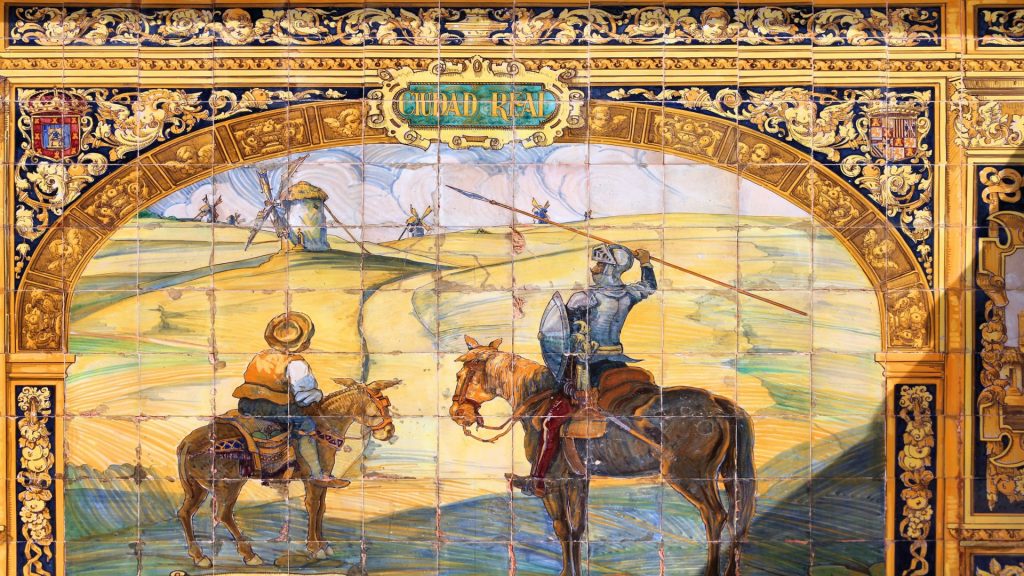
– Do you use Spanish in your daily life or do you plan to use it for your work?
I do use Spanish as part of my teacher training and I intend on using it a lot more when I qualify. Spanish is growing steadily in popularity at schools and this is reflected in the rise in pupils choosing to take it at both GCSE and A levels.
I also use it to read Spanish language newspapers online such as El País, which helps me keep up to date with what is going on.
– Why did you become interested in getting a certificate for Spanish language?
I became interested in doing the DELE certificate really because I wanted to know what my level was and what I needed to improve on. In that respect it was really useful. I also think it is really practical to have a clear goal in mind to focus your studies. That extra bit of pressure helps to structure what you are learning. It is also something more concrete to put on your CV or to talk about at interview.
I was lucky enough to visit the Cervantes Institute headquarters in Madrid last year were I saw some interesting exhibitions about Spanish in the world. It was there that I found out about the DELE exams. It is a fantastic place; if you get the chance to visit, I highly recommend it.
– How did you find the exam?
The exam was like all exams, a bit nerve wracking but completely worth it. You get a good sense of satisfaction once you find out you have passed! I had my speaking at the institute in central London and the other parts at the Cañada Blanch School in Kensington. Everything was seamlessly organised and ran smoothly. All of the staff at the Cervantes were very friendly and professional.
The certificate you get is the most elegant document I have ever seen. It was addressed to “Don William” which made it seem very official but I also it found hilarious!
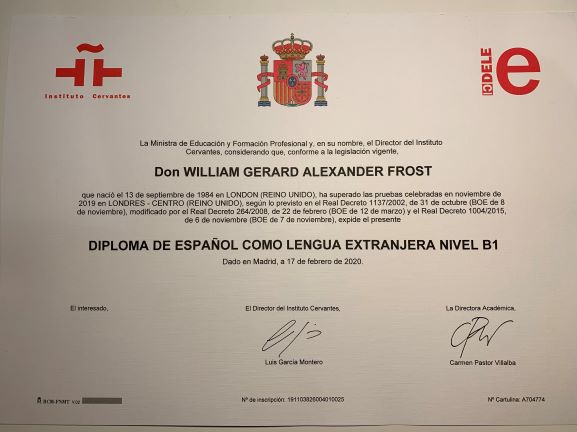
– Do you plan to continue studying Spanish?
I definitely plan to continue studying Spanish, I think it is a wonderful language and I feel like it is the most useful language to be learning right now. Learning in a language is a marathon not a sprint so I am in it for the long haul. It took me ages to remember that piragüismo means canoeing and I recently learned that pencil sharpener is sacapuntas. And I still get a bit confused between ustedes and vosotros, but I’m getting there! You have to keep topping up and refreshing your knowledge as it’s so easy to forget vocabulary! I am also considering taking the DELE B2 or C1 exam next year. ¡Adelante!
The Cervantes Institute has been brilliant in helping me improve my Spanish. But I have also learned about Spanish culture and how the language is used all over the world. At the moment, as travelling is so challenging with the pandemic, all of the online events and resources have been fantastic.
Online Winter 2021 Spanish Courses
Due to the ongoing Covid-19 situation all our 2021 Winter Courses will be taught online in a friendly and supportive environment using video conferencing and distance learning tools. Check all our courses here.
7th Edinburgh Spanish Film Festival: School Programme
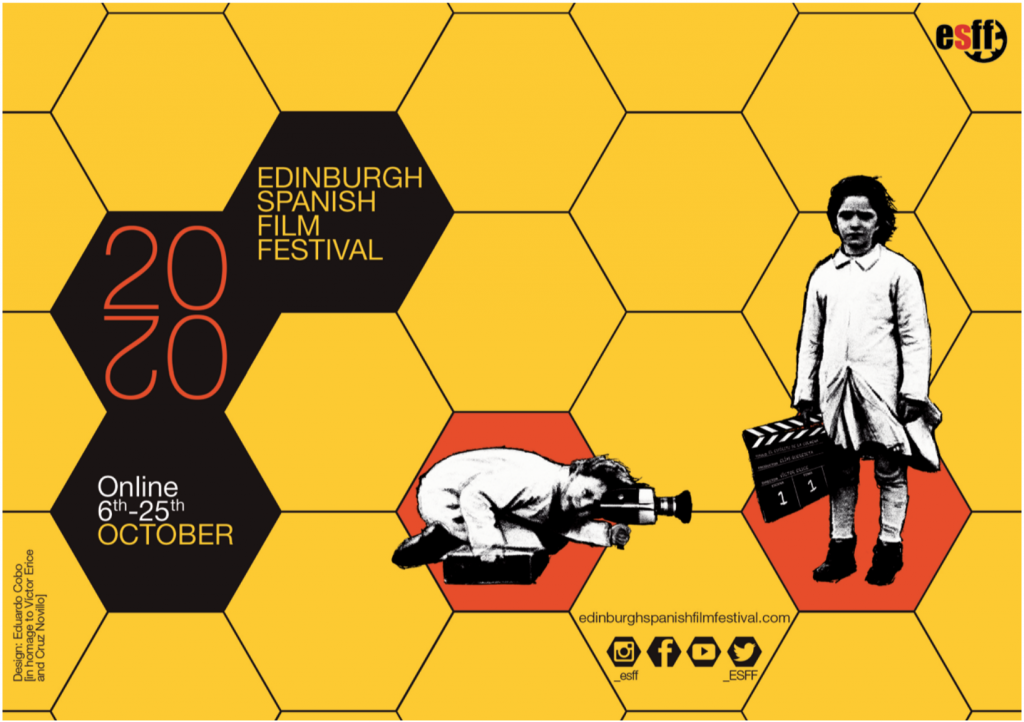
The Edinburgh Spanish Film Festival is back for its seventh edition and it includes a School Programme aimed at Spanish Learning students.
Due to COVID-19, the regular format has changed to an Online Event: the film will be available for 48 hours. The way this would work would be through a link sent to teachers, allowing them access to watch the films in class within a set time.
In this edition, the School Programme films are:
- ‘Los Futbolísimos’ (P7- S2)
This group of schoolmates get into all kinds of adventures which
put their friendship to the test. They uncover a mystery that could
put an end to their football team. The time has come to make a
secret pact and to create ‘Footballest’ with a clear objective: to
solve the mystery and be able to stay together.
- ‘Una vez más’ for (S3-S6)
Abril left Daniel behind 5 years ago, when she decided to try her
luck in London. She is back home now, to bury her grandmother.
Walking the streets of what was her home with the man who was
her love, she realizes she has missed it all.
This programme for Spanish students gives them the opportunity to better their language skills as well as cultural awareness. ESFF has also prepared a set of post-film activities available for students to delve more deeply into films and practice vocabulary.
Tickets £25 per class. For tickets reservations and further information, please contact info.esff@ed.ac.uk
Further information, full programme and tickets: www.edinburghspanishfilmfestival.com
The London Spanish Book & Zine Fair is back

Welcome to London Spanish Book & Zine Fair in its second year. Have a look at the amazing VIRTUAL events taking place between the 2nd and 9th October 2020 on ZOOM!
More than 60 authors and organizations will participate at the book and zine fair that promotes the Spanish language in the UK.
LSBF is delighted to also welcome internationally acclaimed authors Claudia Piñeiro (Argentina), Juan Tomás Ávila Laurel (Ecuatorial Guinea / Spain) and Yaissa Jiménez (Dominic Republic) will be in conversation at the book fair.
These are some of the headlines:
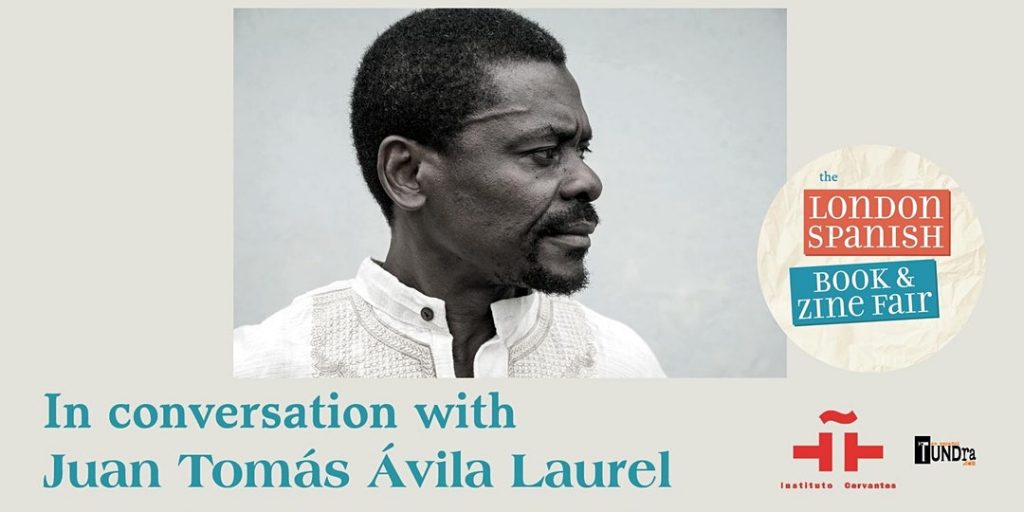
Juan Tomás Ávila Laurel, the most recognized and internationally translated Equatorial Guinean author in conversation with José An. Montero and Inés Villodre. Through the author’s words we will discover the cultural clash between Spaniards and Guineans that constitutes the essence of his latest work, Cuando a Guinea se iba por mar(2019). (In Spanish) Sponsored by Instituto Cervantes
Claudia Piñeiro, the internationally acclaimed Argentine writer, will discuss her career, aspects of her novels and their adaptation for cinema, and will also share her views on the contemporary publishing landscape, the role of the writer as public intellectual, current feminist debates and inclusive language. with Fiona Mackintosh.(In Spanish) Sponsored by The European Bookshop
Join a discussion on what it takes to work as a poet in the 21st century. Is it possible to speak of a crisis of poetry? And of a poetry of the crisis? Poetry in times of crisis, coordinated and presented by Luis Elvira-Sierrawith the participation of writers Eduardo Embry, Sonia Quintero, Consuelo Rivera-Fuentes and Juan Toledo. (In Spanish)
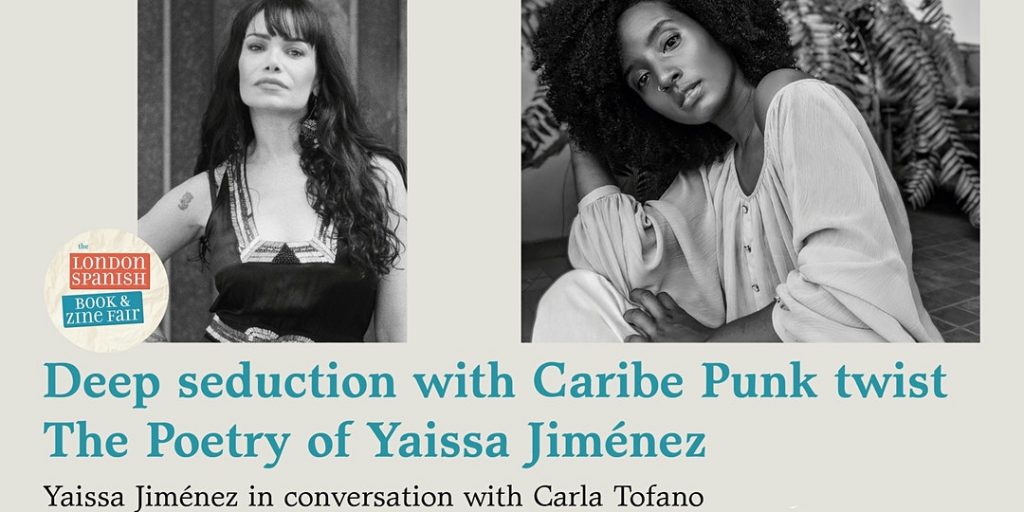
Deep seduction with Caribe Punk twist, a conversation with Dominican writer Yaissa Jiménezthat promises to be sharp and clear, without sacrificing the candid humidity of a tropical jungle. In the hands of the London-based, Venezuelan journalist Carla Tofano, who will unravel the uninterrupted moments of Yaissa’s poetry alongside her personal history. In collaboration with Metralla Rosa.
Authors Patria Román and Jessica Retis will be discussing with Silvia Rothlisberger (Literary South) their recently published book Narratives of Migration, Relocation and Belonging, a publication that gives voices to the diverse diasporic Latin American communities living in the UK by exploring first and onward migration of Latin Americans to Europe, with a specific reference to London. In collaboration with Flawa Festival and Literary South. (In English)
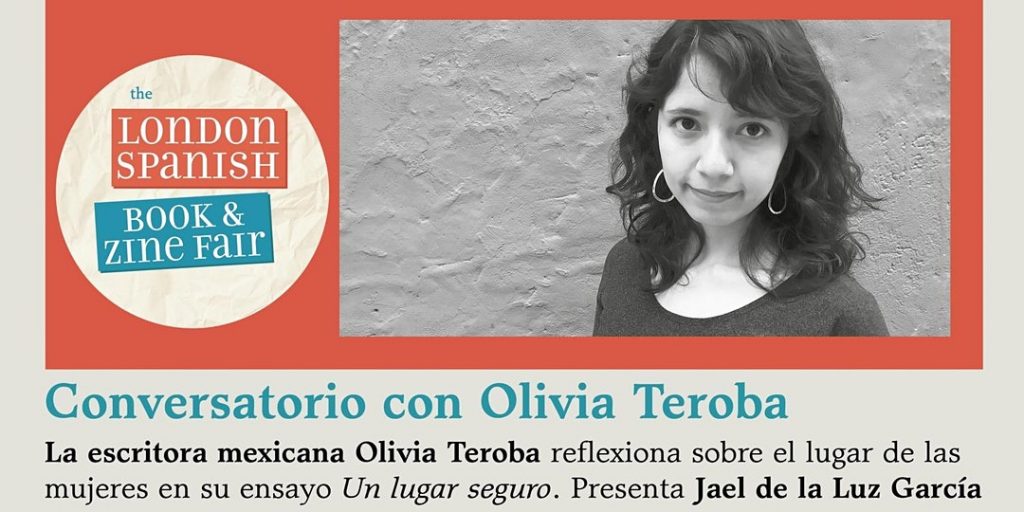
Mexican writer Olivia Teroba will talk with Jael de la Luz García about her bookUn lugar seguro(México, Paraíso Perdido Editorial, 2019) about «the place» for to be a woman writer, holding a dialogue with the British writer Virginia Woolf and her ideas about the importance to have a room of one´s own. In collaboration with The Feminist Library (In Spanish)
Join the distinguished translators Adam Feinstein and Richard Gwyn while they discuss the specific challenges involved in translating poetry. What is the role of the translator: interpreter, intermediary between the poet and the reader? Is it ever possible to maintain the delicate balance between music and meaning, especially in two such different languages as Spanish and English? (In English)
Mariza Bafile (ViceVersa Magazine),Lucila Carzoglio (Chop Suey Magazine), Flor Coll (femiñetas)will discuss with Silvia Demetilla (La Tundra Magazine) about the Indie Magazines Revolution, how independent media could survive in economic crisis, self-management, the digital era and the future of independent publishing. In collaboration with Chop Suey Magazine, femiñetas, ViceVersa Magazine and La Tundra Magazine. (In Spanish)
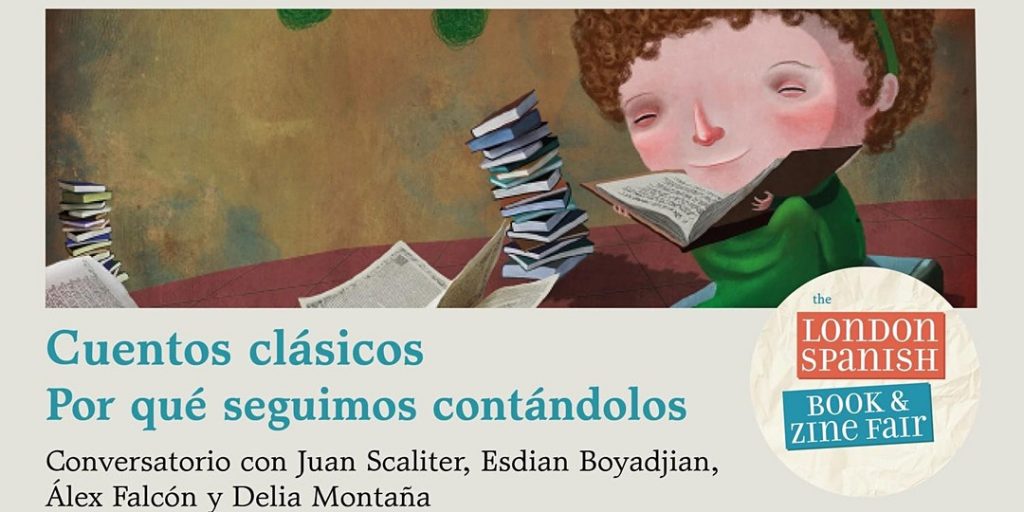
An arduous work of revision is proposed to those of us who have enjoyed and called into question classic children’s stories. Illustrators, writers and all the ones who are truly engaged in literary tours for kids will share enriching experiences in order to understand the importance of reading fairy tales during childhood. Join the debate with authors and illustrators Juan Scaliter, Esdian Boyadjian,Álex Falcón and DeliaMontaña at Cuentos clásicos: Por qué seguimos contándolos. (In Spanish)
Acclaimed young comic writers Edo Brenes(Costa Rica), Flora Márquez(Argentina), Ilu Ros (Spain) and Catalina Bu (Chile) will discuss about how the comic can become a fascinating resource for narrating an intimate journal at Autobiographical Comics from the Spanish speaking world. (In Spanish)
Join zine makers and authors from Latin America as they will share their experiences in the world of fanzine in Fanzines en el mundo. Coordinated and presented by Titihoon (Berlin Grafik), with the participation of María Victoria Rodríguez, Zine Fest Berlin, Eduardo Yaguas (Ediciones deformes), Daniela Utescher (Uga Press), Athos Pastore and Pablo Ontivero(Deriva Ediciones); Noir Yaguara, Martín López Lam(Festival Tenderete), Bellina Ilustra and Esdian (Autoeditadas); Julisa Jiménez, Frida Esquivel and Mar Villarroel (Pies que arden), and Pedro Mancini.In collaboration with Berlin Grafik and Autoeditadas (In Spanish)
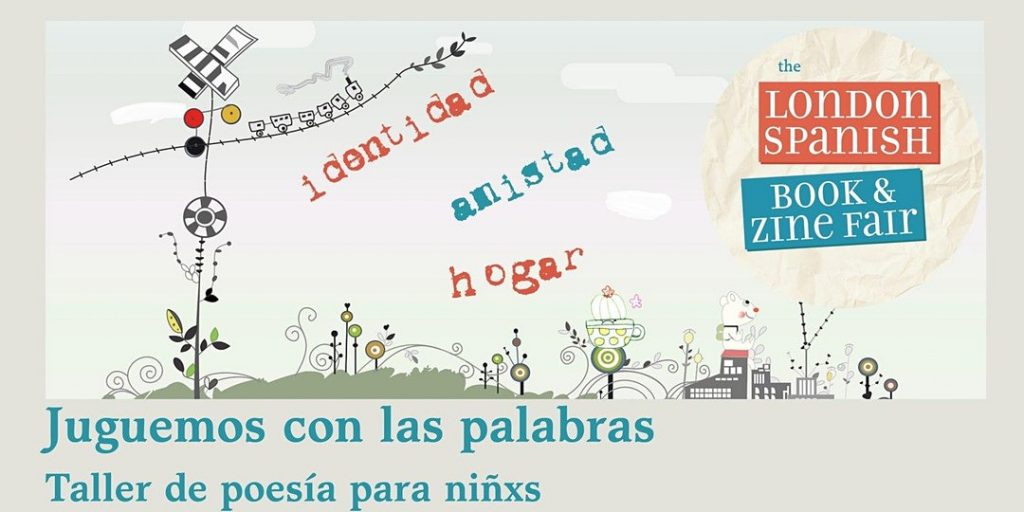
Workshops: Poetry workshop in Spanish for children from 7 to 11 years old with writers Mabel Encinas-Sánchez and Isabel Ros-López; Fanzine Workshop by Pop Comixs; Creative Collage Workshop in Spanish with Jael de la Luz García and Poetry Jam coordinated by Luis Elvira-Sierra with Xaviera Ringelingy Alfonso Montilla.
The 16th London Spanish Film Festival is here
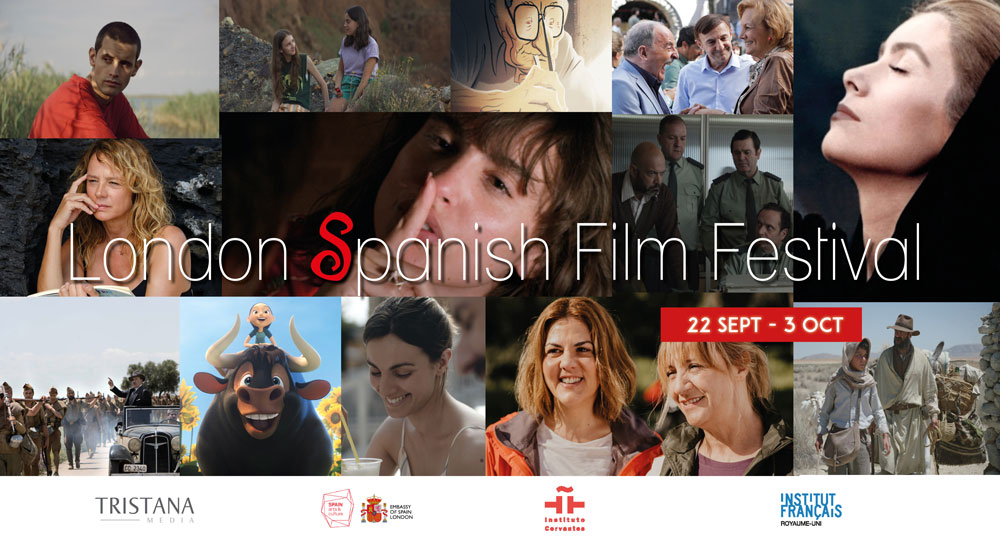
The London Spanish Film Festival, now in its 16th edition, comes again to Ciné Lumière, from September 22nd to October 3rd, with an exciting selection of some of the best films made in Spain.
Most of the films are UK premieres and probably your only chance to watch them! Thecore program and Basque and Catalan Windows offer a variety of films covering many genres and showing the wealth of talent Spain has to offer.
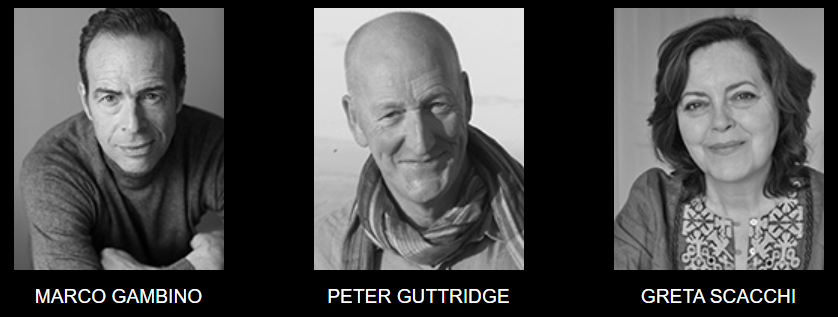
This year the Jury who will award the Best Film prize is formed by Greta Scacchi, Peter Guttridge and Marco Gambino.
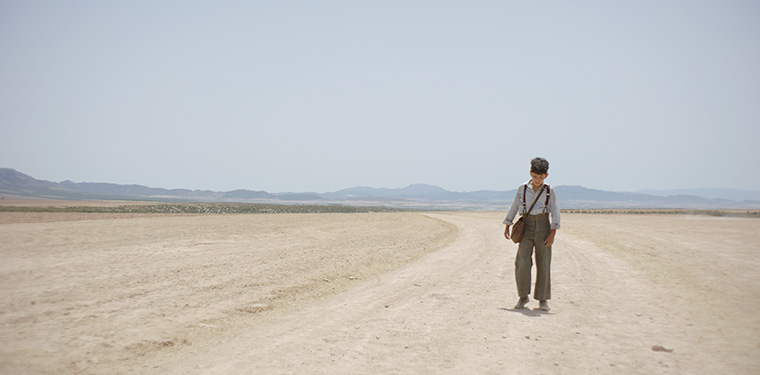
Don’t miss the chance to watch Out in the Open, directed by Benito Zambrano is a breath-taking thriller, gorgeously-shot Western, boasting the stunning cinematography of Pau Esteve Birba.
A boy runs away from home, dashing through the heartlands. Leaving his penniless family behind him, he is desperate to reach the city and earn a living. But his pursuers are giving chase… Out in the open, he finds a shepherd who offers protection, a mysterious man who spent many years in Morocco before the Civil War.
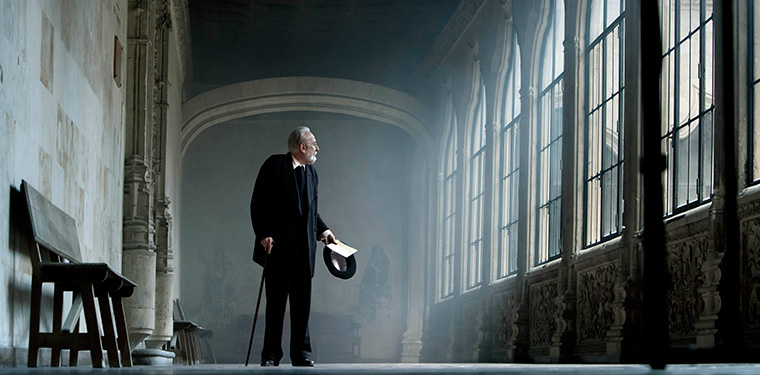
Highlights include While at War by Academy Award winner Alejandro Amenábar, his seventh feature film, which takes us back to the days of the Spanish Civil War outbreak and Miguel de Unamuno’s fight in Salamanca against everyone to stand for what he believed was right.
Not just another Spanish Civil War film, While at War goes beyond the depiction of one of its chapters, but shows the dangers of political passivity and the dignity of the famous philosopher and writer who fought angainst everyone, right and left, to stand for what he believed in.
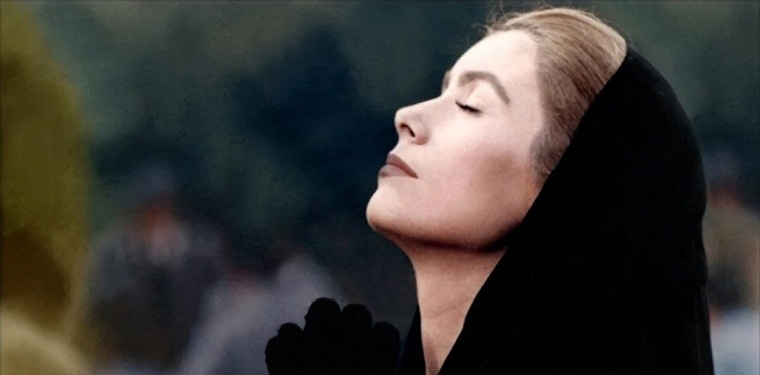
The program also includes a special screening of Luis Buñuel’s Tristana starring Catherine Deneuve, to celebrate the 50th anniversary of the film. Now a classic, Tristana caused a stir with his exploration of decadence, repression and desire in Toledo, which was based on Benito Pérez Galdós’s novel by the same title and written in 1892.
Tristana is a young woman who remains orphan and goes to the house of don Lope under his protection. Don Lope falls under the spell of her and takes up the role of protector/husband. Things start changing when she falls in love with a young artist and the until then submissive Tristana starts finding her own voice.
Spanish is the most popular language at A-levels for the first time, according to British Council Language Trends annual report
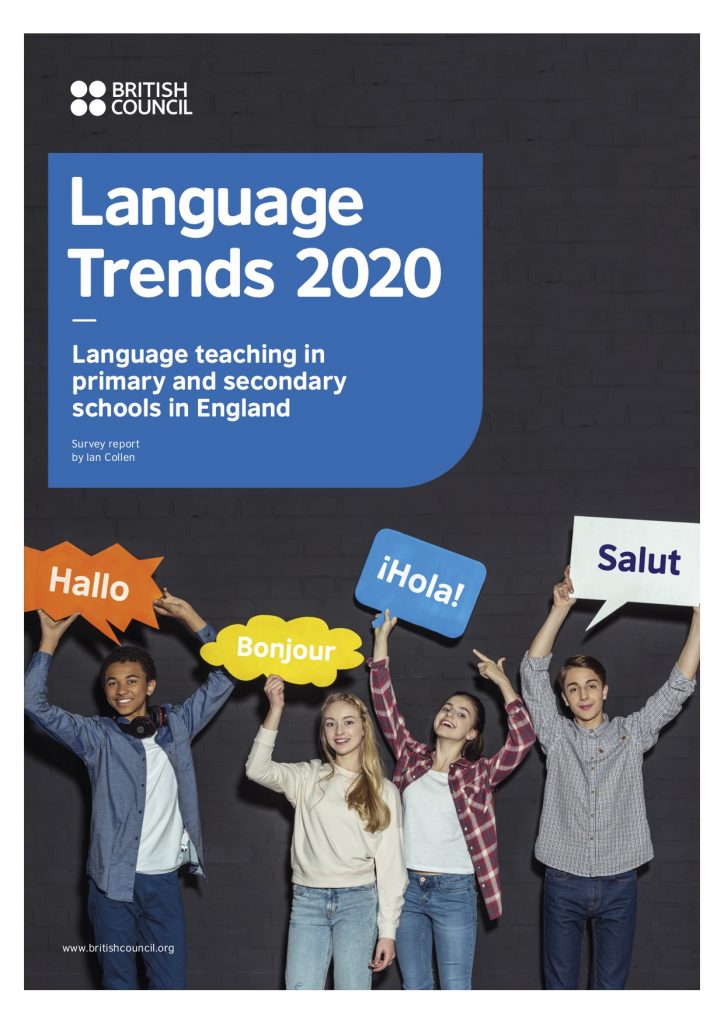
Spanish entries at A level exams in England have increased by almost 5% from 2018 making it the most popular language for the first time since A levels began. The records come from the Language Trends 2020 report which was published today by the British Council.
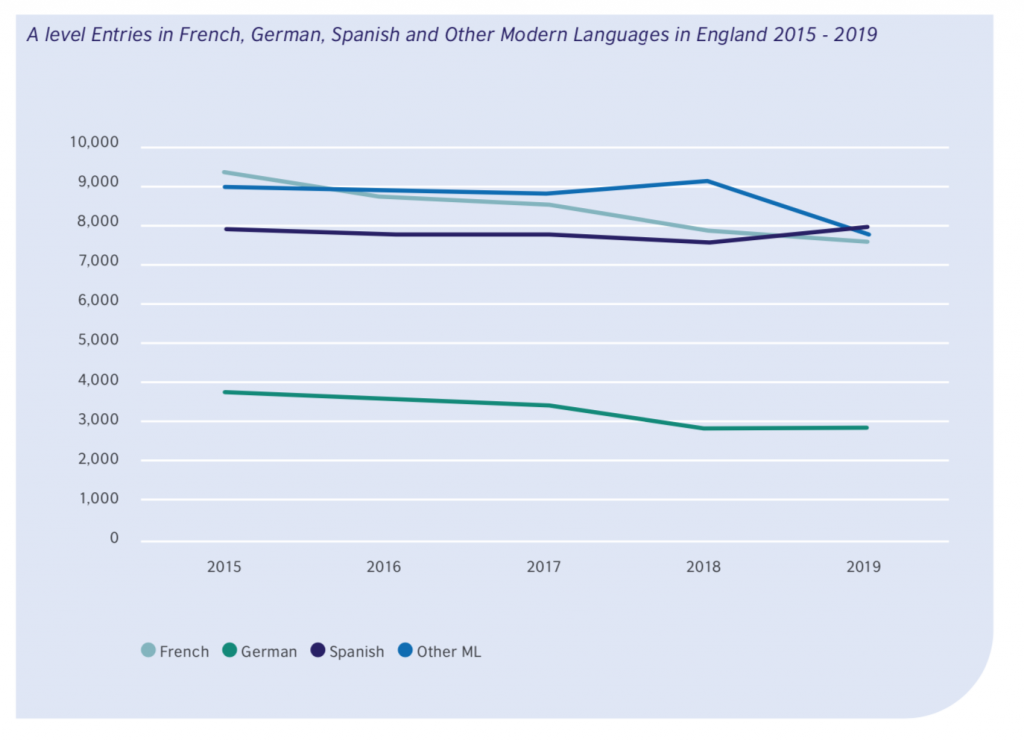
Between 2018 and 2019, entries for Spanish increased by 7.5% whilst French increased by almost 4%, according to official data on GCSE and A-level results from the Joint Council for Qualifications (JCQ). In total, 96.811 students took Spanish at GCSE in 2019 and 7.932 did the same at A-levels.
The annual report underlines that, “French looks set to be overtaken by Spanish as the most popular language by 2030, or earlier, if current trends continue,” using the data provided by the Joint Council for Qualifications (JCQ).
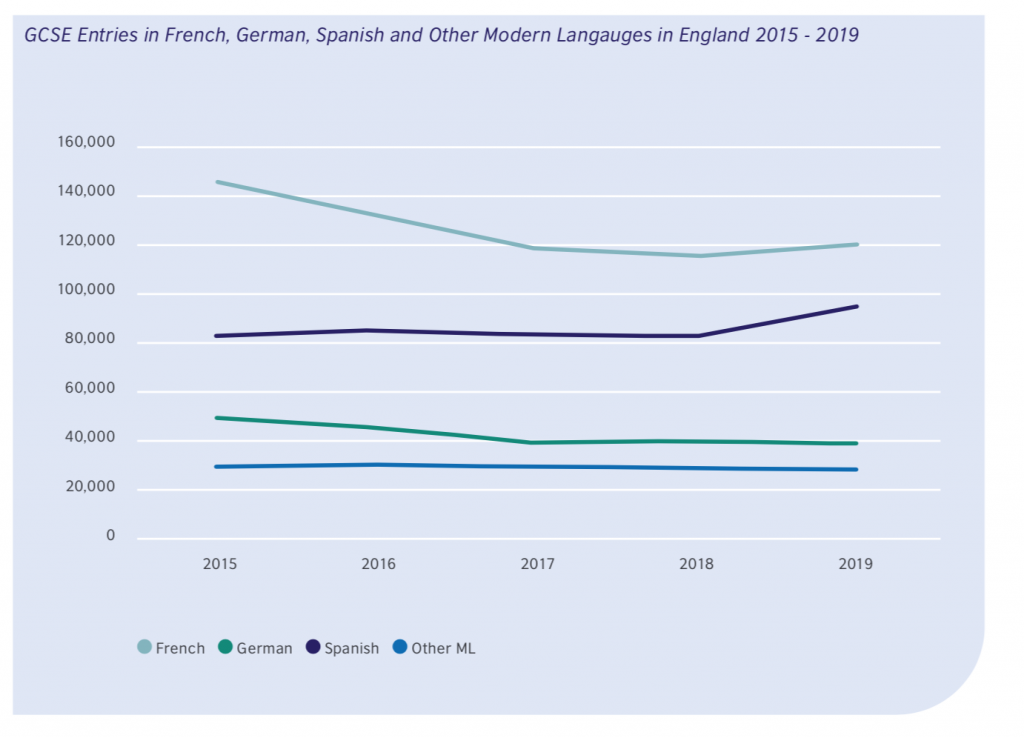
“The figures for studying foreign languages are still small, but the fact that Spanish takes the first position for the first time in history, is indicative of profound changes. These changes tell us about the growing weight of the Spanish-speaking world and its correlation in a country used to thinking globally, such as Great Britain,” said the director of the Instituto Cervantes in London, Ignacio Peyró.
Language Trends is an annual survey of primary and secondary schools in England designed to gather information about the situation for language teaching and learning. Its aims are to assess the impact of policy measures in relation to languages and to analyse strengths and weaknesses based both on quantitative evidence and on views expressed by teachers.
Instituto Cervantes and the British Council signed a Memorandum of Understanding in November 2019 with the aim of strengthening the bilateral dialogue and promoting “the joint work” so that each institution can “achieve its strategic results more effectively”.
«I am enormously grateful to all at Instituto Cervantes London who conspired to get me over the finish line»
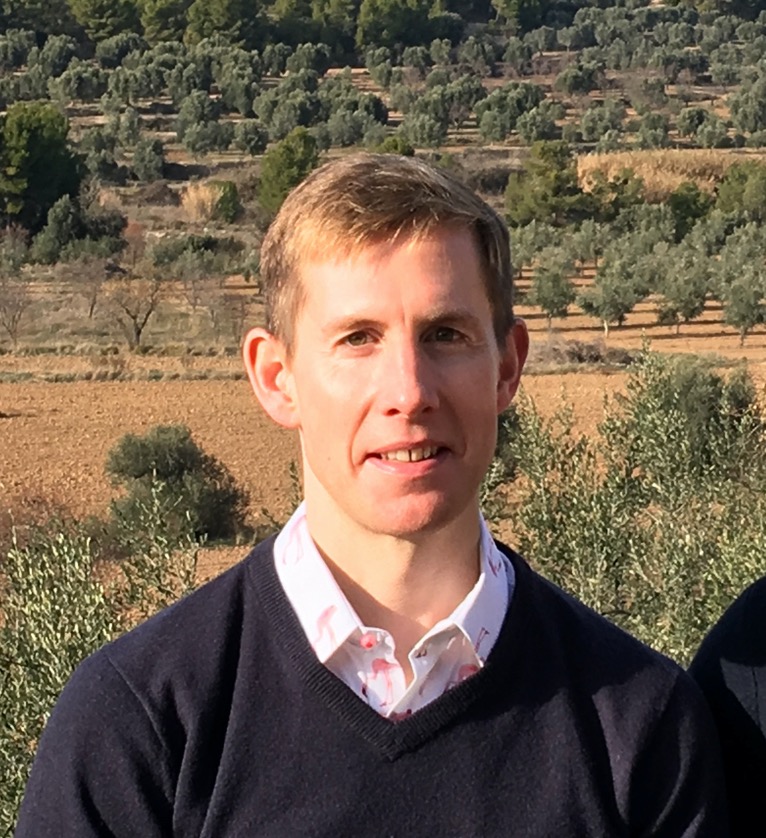
Today we chat with one of our students, Joseph McGowan, who just passed DELE C2 exam and previously achieved DELE C1. Joseph has studied Spanish at Instituto Cervantes in London for a long time and he prepared himself for this exam with our teachers. He enjoys learning Spanish every week and travelling to the beautiful Catalonian town of Sitges.
¿Why did you decide to take DELE exam?
I decided to take the DELE exam, not out of any academic, professional or administrative necessity, but simply as a personal challenge. I wanted to learn Spanish, but I knew I had to have a deadline, otherwise I’d pootle along aimlessly. Procrastination is an art form I’ve mastered, so I needed some impetus to turn the desire to learn into a reality. Also, with years of unstructured learning of French under my belt, I knew that the vague target of «I want to speak a language» can be like trying to reach the end of the rainbow: you never quite get there; there’s always a bit further to go. The feeling you can speak a language successfully comes and goes like the weather, depending on mood, physical state, subject-matter, interlocutor, etc. So I wanted an objective and solid milestone by which to measure my progress.-
How was the preparation? What was the most difficult part for you?
Without doubt, the writing was the most difficult element. I was a terrible schoolboy, never did my homework, didn’t take any further exams after my GCSEs, so once again being faced with The Demon Blank Sheet of Paper waiting to be filled was not only an academic but also a psychological barrier to break through. Fortunately I had a fantastic teacher who was extremely patient and generous with her time and effort. She offered to be my sherpa to guide me up the mountain to the exam. And that mountain certainly did seem steep, and rocky. But once I got there, it was amazing to look back and see how far I’d come.
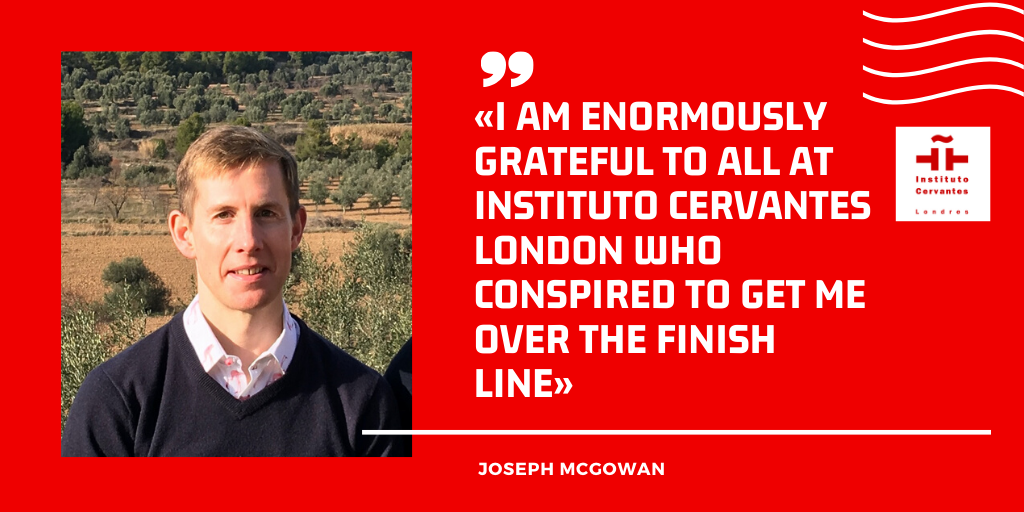
How did the DELE preparation classes at Instituto Cervantes London help you?
As you’ll have gathered, for me the classes were indispensable. Left to my own devices, I could never have passed the C1 and C2 exams. At an advanced level, even in their native tongue, I think someone would struggle to pass a CEFR language exam without preparation. You have to know the format of the exam; for the writing, there are models of text you may not be familiar with; and learning to manage the time in the exam is essential and, at least to me, did not come naturally. My teacher carefully planned each class so there was a progression, which stopped me spending too much time on one particular element at the expense of another. She was there to remind me that you only have to be good enough to pass the exam, there’s no point in trying to exceed the requirements. Of course, perfection is the enemy of good, but it’s sometimes hard to judge alone. In the moments when my determination wobbled and I thought, «Why am I putting myself through this?», I knew I couldn’t let her down and back out now, after we’d both invested so much time and effort.
Looking back, the fact I embarked upon this journey in my 40th year probably isn’t a coincidence. At a time of taking stock of one’s life, it’s not a bad way to live out a mid-life crisis! I am enormously grateful to all at Instituto Cervantes London who conspired to get me over the finish line (twice). The journey is not over, of course — I am now working on Spanish literature with my teacher — but I am very pleased, even proud, to have put those two important milestones behind me.
If you want to take a DELE exam, you can enrol through the online shop of Instituto Cervantes London (CLIC Londres).
These are the upcoming exam sessions at Instituto Cervantes London:
- 11 September (written and oral exam), DELE for Young Learners: Levels A1 and A2/B1
Enrolment deadline 15 July - 11 September (written exam), 11/12 September (oral exam). Level A1, A2, B1, B2, C1, C2
Enrolment deadline 15 July - 13 November (written and oral exam), DELE for Young Learners: Levels A1 and A2/B1
Enrolment deadline 7 October - 14 November (written exam), 13/14 November (oral exam). Levels: A1, A2, B1, B2, C1, C2
Enrolment deadline 7 October
“There’s much talent in Spanish film industry and now it’s being channeled”
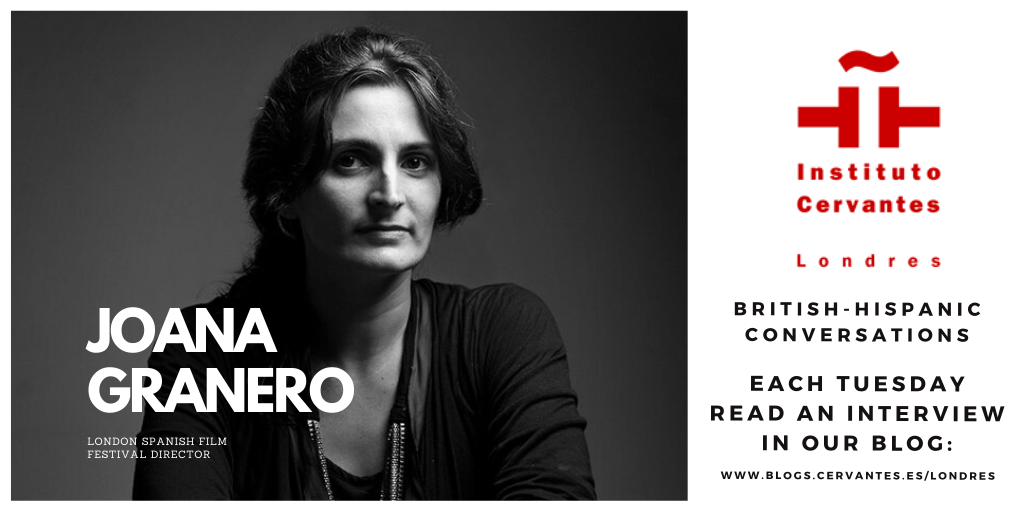
This week, we continue a series of interviews with personalities from the Spanish-British sphere. Our fifth guest, Joana Granero, is the director of the London Spanish Film Festival in London.
Granero was born in Tarragona (Catalonia). After graduating in Law from the University of Barcelona she spent a couple of years in Italy and then moved to London, where she worked in publishing and got a MSc in Political and Social Theory from Birkbeck College.
Out of a passion for cinema Granero created the London Spanish Film Festival in 2005, an event that was to fill a gap in London’s cultural panorama by bringing contemporary Spanish cinema in a well-defined context.
In 2008 the Ambassador of Spain in London awarded her with the civil merit medal (Orden de Isabel la Católica) in recognition of her work with Spanish cinema. Granero also works as an independent curator and producer.
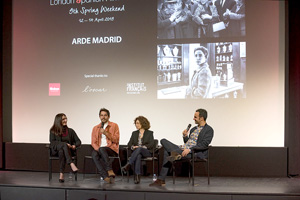
– Out of a passion for cinema, you created the London Spanish Film Festival in 2005, how did the idea come up?
The idea came up seeing the few opportunities to watch Spanish cinema in the UK, particularly in London, a city so rich culturally, where it was possible to watch such a wide variety of films, from so many different countries. Spain was underrepresented. Then it was only possible to watch a few films at the international festivals and only Almodóvar, Amenábar and Medem got distribution of their films with few exceptions. I thought there was so much more to watch and, having always been a cinephile, I missed it. Hence at the moment in my career in which I was looking for a change, I put myself to work and here we are!
– How have these 15 years at the LSFF been?
All in all, they’ve been exciting and enriching. They’ve been exciting because it’s never been boring or plain. We’ve lived many challenges, stressful situations alternated with moments of jubilation seeing the happiness of an audience, moments of joy with a full house and an impressed guest from Spain. Also some embarrassing and uncomfortable situations, like having to announce a guest’s last minute cancellation to an expectant audience. But every year we feel enriched with all the films, their contexts and conversations with guests, following the work of young and not so young filmmakers, and we feel extremely happy and proud to share it with audiences.
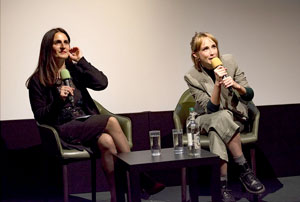
– Could you share with us a couple of anecdotes that you remember from all these years?
One of my favourite moments ever is when Jorge Coira came to present his film «18 comidas«. We introduced it briefly to a full or nearly full house, which was surprising because he was not one of the best-known directors. We went for dinner while the audience watched the film and came back to do the Q&A and as people were leaving the cinema so many were approaching him to thank him for the film and tell him how much they had enjoyed it. In English, in Spanish and in Galician. Some were even thanking me for having brought the film over. Coira was moved. I was moved and trying not to cry. It was magical. That feeling of having gifted something that had made people happy even if only for an evening.
There have been many great moments behind the scenes too, like having very informal drinks at the end of the evening in the salons of the cinema with Fernando Trueba or Javier Cámara, the Festival’s team and the projectionist. Also some delightful surprise, like when Geraldine Chaplin was our guest and a gorgeous Oona Chaplin came looking for her mother, when Olga Kurylenko came to see her friend Jordi Mollà, who was our guest, or when we spotted among our audience Mike Lee, Steve Buscemi or Elle Macpherson.
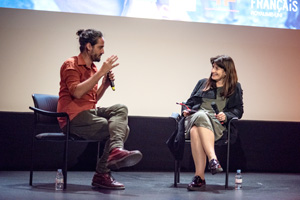
© PopKlik
– How do you describe the general picture of Spanish cinema in the UK? Do you think our film industry is in good shape?
Since we started, the position of Spanish cinema in the UK has improved generally because there have been more films distributed and home cinema and streaming have contributed to this but there is still much room for improvement. Nevertheless we are very happy to see that the Festival and its Spring Weekend have become a regular, solid and anticipated window to the cinema from Spain in London.
As per the health of our film industry, I think more should be done in terms of promotion and distribution but of one thing we are convinced: there’s much talent in Spain and it’s being channeled.
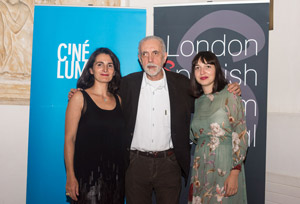
© PopKlik
– You are now working on the round off the 16th edition of the festival, what do you plan on showcasing?
It’s difficult to say anything about the next edition due to all the uncertainty surrounding COVID19 and public gatherings. We keep working in a program but we’ll have to see what is possible and what is not. So far our 10th Spring Weekend scheduled for May has had to be cancelled but we may be able to have a short «summer weekend». We have to wait a bit and see. But we keep working with the cinemas and our supporters towards a solution.
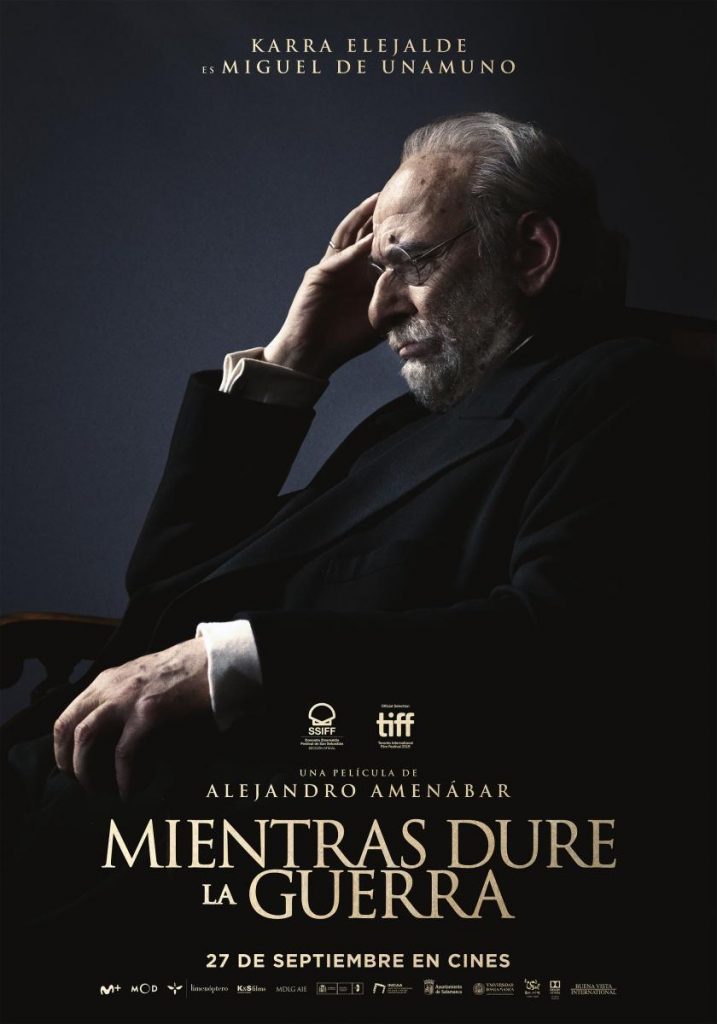
– The audience loves your Q&A featuring very diverse guests in the programme. Who would you like to have in the next upcoming months?
Hard to say without a program in hand but we’ve recently watched the latest film by Alejandro Amenabar, Mientras dure la guerra / While at War, and we’d very much like having him with us to talk about this film and his work as filmmaker but also about his music work. We’d love to have back Carlos Saura but this time with his daughter, Anna Saura, who has been producing his latest theater and film productions. I first met her when she was 9 years old and she’s become a great and determined producer. We’d also love having back Alvaro Longoria to talk about his tireless work as a director and producer.
Dream guest would be Pedro Almodovar. We’ve featured some of his work along the years and we’d love having him with us to talk about anything. He has so much to offer. We’d also like to talk cinema with Alberto Rodriguez. And books, films and food with Isabel Coixet. I could go on for a good while….
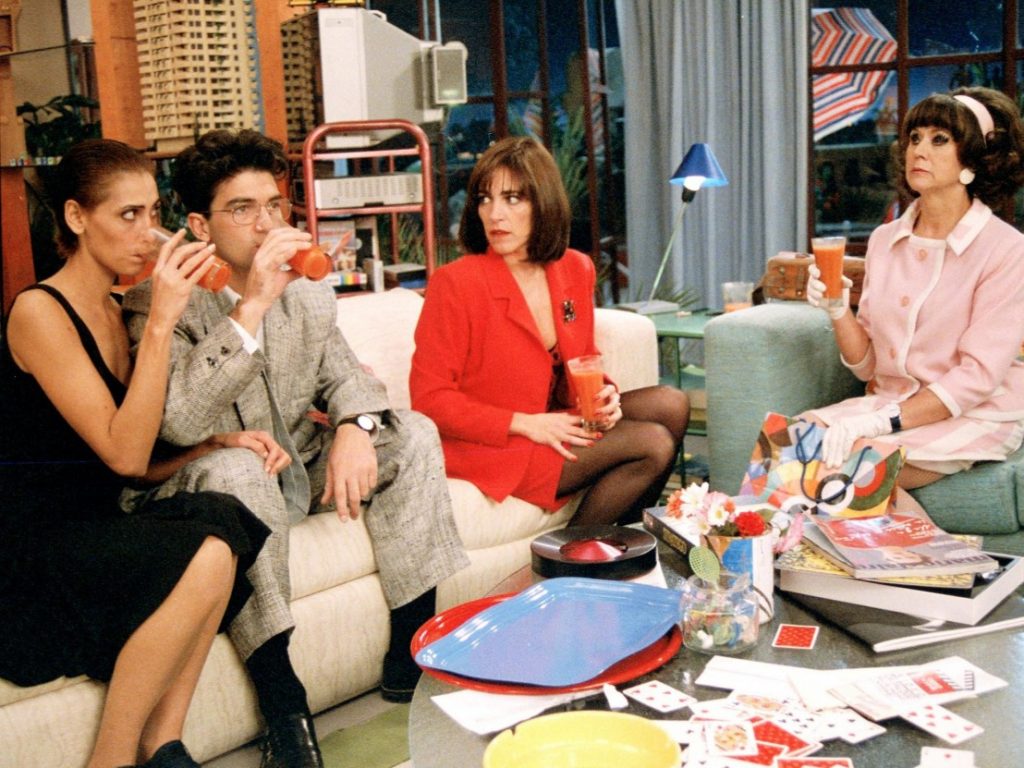
– Could you suggest the title of 5 Spanish films to our audience so they can get a good introduction to Spanish cinema?
As I’ve mentioned Pedro Almodovar, I’d start with Women on the Verge of a Nervous Breakdown. I think there’s a before and an after that film. At the time it came out I could not get tired of watching it. I was completely fascinated by that refreshing way of looking at cinema and at women. And I think it has a timeless quality about it.
La tia Tula, by Miguel Picazo, illustrates very well with its realist approach provincial society in 60s Spain and it’s been a point of reference for Almodovar himself.
El extraño viaje, by Fernando Fernán Gomez, is one of my favorites. It is illustrative of the very Spanish tradition of esperpento. It’s fun. It’s crazy. It’s daring. It’s absurd. One can’t but wonder how it went through Franco’s censorship in 1964.
Te doy mis ojos, by Iciar Bollain, is another gem I think with two fantastic actors, Luis Tosar and Laia Marull. In a realistic and delicate way shows a dark side of Spain’s society.
Que Dios nos perdone / May God Save us is a film by Rodrigo Sorogoyen, from a younger generation. I think it is a terribly good film and representative of a maturity in Spanish cinema.
These are only a few of the many, many films I think could provide with a good introduction to Spanish cinema. This is perhaps just one of many ways to start.


